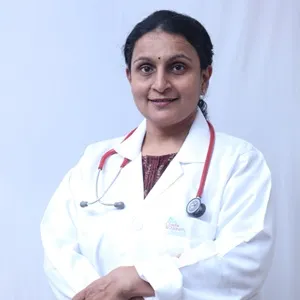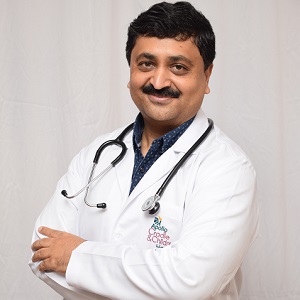Introduction
Hormonal disorders in children are a cause of concern for parents and caregivers. These disorders occur due to imbalances in the hormones that regulate growth, development, and metabolism. Let’s discuss paediatric endocrinology and various hormonal disorders in children, their diagnosis, and treatment.
Common Hormonal Disorders in Children
Pediatric endocrinology deals with the diagnosis and treatment of hormonal disorders in children. Several hormonal disorders commonly affect children, including diabetes, growth hormone deficiency, thyroid disorders, and adrenal gland disorders. Diabetes is a condition where the body does not produce or use insulin properly. Growth hormone deficiency can result in short stature and delayed puberty. Thyroid disorders can cause problems with growth, development, and metabolism. Adrenal gland disorders can cause problems with salt and water balance, and hormone production.
Diagnosis of Hormonal Disorders in Children
Diagnosing hormonal disorders in children involves a series of tests and evaluations. The tests used to diagnose hormonal disorders in children include blood tests, urine tests, imaging tests such as MRI or ultrasound, and genetic testing. These tests help to identify the underlying cause of the hormonal disorder and guide the appropriate treatment plan. It is important to prepare for these tests as instructed by the doctor, as some tests require fasting or specific medications to be stopped beforehand.
Treatment of Hormonal Disorders in Children
The treatment options for hormonal disorders in children depend on the specific disorder and its underlying cause. Treatment options include medications, surgery, and hormone replacement therapy. For example, insulin injections are used to treat diabetes, while growth hormone injections can treat growth hormone deficiency. Surgery may be necessary to remove tumours or other growths that cause hormonal imbalances. Hormone replacement therapy may also be used to replace hormones that are missing or not being produced in sufficient quantities. It is important to note that treatment should always be under the guidance and supervision of a paediatric endocrinologist.
When to Consult a Doctor: Pediatric Endocrinology
Parents should consult a doctor if they suspect their child may have a hormonal disorder. Signs of a hormonal disorder can include growth abnormalities, abnormal weight gain or loss, fatigue, and changes in appetite or thirst. It is important to seek timely diagnosis and treatment for hormonal disorders in children, as untreated hormonal disorders can lead to serious health problems, including diabetes complications, short stature, and thyroid dysfunction. Pediatric endocrinologists specialize in treating hormonal disorders in children and can help develop an appropriate treatment plan for your child.
Conclusion
Hormonal disorders in children can have a significant impact on their growth and development. It is important to be aware of the symptoms and seek medical advice if necessary. Early diagnosis and treatment can help children lead a healthy and normal life.
Request an appointment at Apollo Cradle, Bengaluru - Jayanagar. Call 1860-500-4424 to book an appointment.
Common symptoms of diabetes in children include increased thirst, frequent urination, fatigue, and unexplained weight loss. In addition, children may also experience increased hunger, blurred vision, dry mouth, itchy skin, and slow healing of wounds. It is important to note that some children may not exhibit any symptoms, especially in the early stages of diabetes, which is why regular check-ups with a doctor are crucial.
Growth hormone deficiency is a condition where the body does not produce enough growth hormone, which affects the child's growth and development. Children with growth hormone deficiency may experience slower than average growth, delayed puberty, and shorter stature than their peers.
Thyroid disorders occur when the thyroid gland does not produce enough or too much thyroid hormone, leading to various symptoms such as fatigue, weight gain or loss, and mood changes.
In some cases, hormonal disorders in children cannot be prevented. However, adopting a healthy lifestyle, maintaining a healthy weight, and having regular check-ups with a doctor can help prevent some hormonal disorders.
Surgery is not always necessary to treat hormonal disorders in children. Treatment options depend on the specific disorder and its severity. For example, children with type 1 diabetes typically require insulin therapy to manage their blood sugar levels, while those with growth hormone deficiency may receive growth hormone injections to promote growth.
Our Doctors
Treatments
- Anaesthesia & Pain Management
- General Pediatrics
- Growth Chart
- Newborn Screening
- Pediatric Allergy
- Pediatric Dermatology
- Pediatric Endocrinology
- Pediatric Nutrition
- Pediatric Orthopedics
- Pediatric Psychology
- Pediatric Surgery & Urology
- ROP Screening
- Stem Cell banking
- Vaccination/Immunisation Schedule

 93% Patient Satisfaction Score
93% Patient Satisfaction Score


